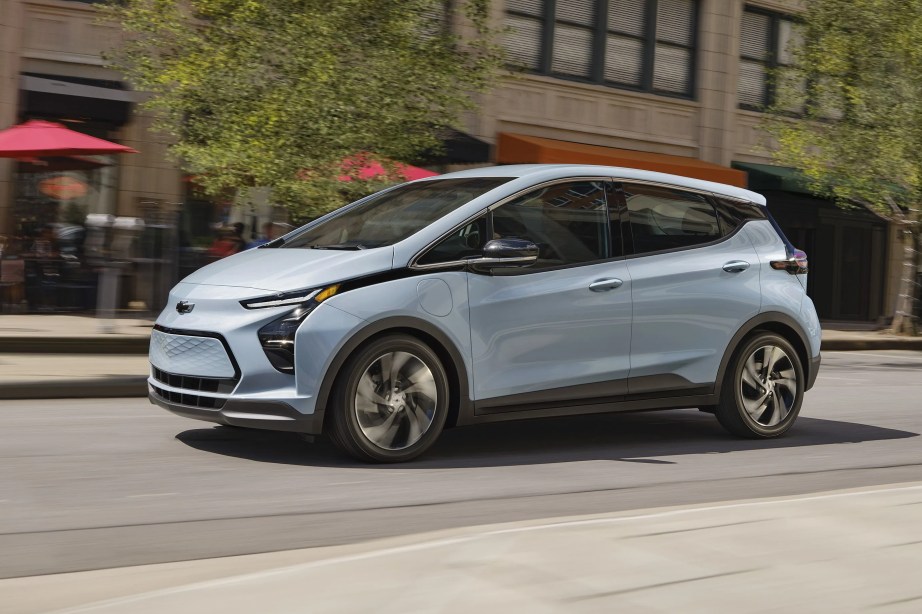Electric cars have become a byword for expensive vehicles. There’s some merit to that. Battery technology isn’t cheap. Electric cars — not building on a century of combustion engine development — require more research and development. An electric car will likely be significantly more expensive than its combustion counterpart. But that’s not the whole story.
The average price Americans pay for a new car is around $47,000. And you can buy several electric vehicles for much less than that. Not all of them will offer spectacular range or the amenities one would find in a similarly priced ICE vehicle. But all of them allow you to avoid paying crazy high costs at the pump if (okay, when) the price of gas should skyrocket once again.
The Cheapest Electric Cars You Can Buy in 2023
Chevrolet Bolt EV
 Chevrolet
Chevrolet- Starting MSRP: $26,500
- Top EPA Range: 259 miles
- Federal Tax Credit: Yes
The Bolt doesn’t provide many frills or thrills. But it offers the range buyers want at a seriously affordable price point. Chevy is getting rid of it after the 2023 model year. But it’s still available now, so if you’re interested, snap one up while the getting is good.












